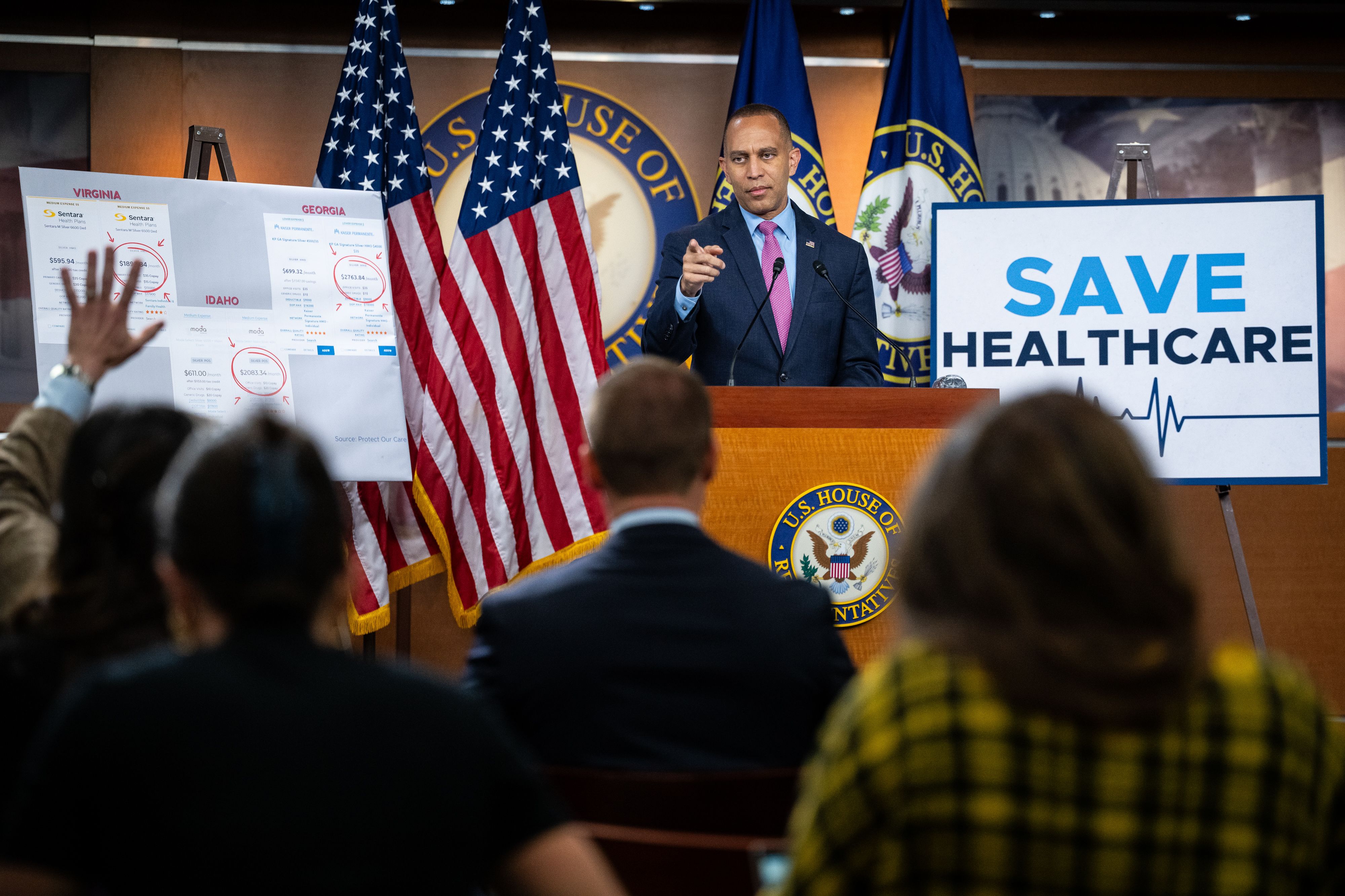Hakeem Jeffries: A Stalwart of Democratic Resistance

In a country where political divides often dictate the agenda, House Minority Leader Hakeem Jeffries stands firm on issues vital to Democrats and the American public. Recently, he affirmed a commitment by himself and fellow Democrats to continue a government shutdown until a bipartisan agreement can be made regarding the extension of enhanced Affordable Care Act (ACA) subsidies.
The Democratic Stance on Health Care
During an interview with MSNBC, Jeffries articulated the importance of health care for working-class citizens. “Our fight is to make sure we continue to stand up to address the Republican health care crisis,” he emphasized. This statement encapsulates the Democrats’ strategy to draw a clear line on health care issues, portraying them as a matter of equity and justice for middle-class and everyday Americans.
Current Dialogue: A Standstill
Despite the urgencies voiced by Jeffries, he pointedly remarked that high-level discussions between Republican and Democratic leadership are not taking place “at this moment.” This lack of communication reveals the entrenched schisms that often characterize contemporary American politics.
Jeffries expressed frustration, noting that the White House and Republican leaders have become “radio silent” following a meeting in the Oval Office earlier in the week. He suggested that this silence speaks volumes about Republican intentions, especially their apparent willingness to allow a government shutdown rather than negotiate on health care provisions that he argues are crucial for the average American.
The Human Cost of Shutdowns
Elaborating on the ramifications of a shutdown, Jeffries condemned the Republican leadership for what he views as a callous disregard for the lives of federal employees. He critiqued the current administration for seemingly treating “hardworking federal civil servants” as expendable pawns—a troubling narrative when mass layoffs loom as a consequence of the shutdown.
“This isn’t an unprecedented situation; it’s indicative of a broader trend,” Jeffries noted, linking these potential layoffs to a pattern of administrative actions that began even before the shutdown was a reality. His words highlight the human impact of political maneuvering, stirring empathy for those caught in the tumult of governmental inaction.
The Need for Accountability
Jeffries didn’t shy away from addressing the perceived motivations behind Republican strategies. According to him, claims made by the Trump administration regarding the urgency of negotiations are merely a pretext for decisions they have already undertaken. He believes that it is essential for Democrats to maintain a firm stance on behalf of the American populace while remaining open to negotiations.
“This administration is trying to bully us, and we’re not going to be bullied,” he added, reiterating the Democratic dedication to protecting citizen welfare while navigating through complex political landscapes.
The Bigger Picture
As the health care debate intensifies amid these negotiations, Jeffries’ advocacy underscores a critical dichotomy in American politics—one that pits the needs of citizens against the often self-interested motives of political factions. His unwavering stance serves as a focal point for those advocating for universal health care access, raising questions about how the interests of everyday Americans can be prioritized in a system that often appears paralyzed by partisanship.
In summary, Representative Hakeem Jeffries represents a pivotal voice in this ongoing struggle, reminding both sides that the stakes are not merely political, but deeply personal for millions of Americans relying on health care and stability from their government. The outcome of these negotiations may very well define both the future of health care in America and the political landscape heading into the next election cycle.



